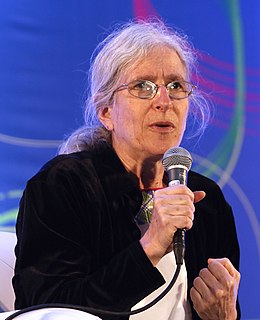A Quote by Dean Spade
When social movements engage in legal reform, they often mobilize images of people from their constituent population who most match national norms about what "deserving citizens" are like, and use those people as spokespeople and as lead plaintiffs in legal cases. This strategy requires that people who are experiencing intersectional harm - who are vulnerable through multiple vectors of demonization and marginalization - be further marginalized and disappeared by the advocacy.
Quote Topics
About
Advocacy
Cases
Citizens
Deserving
Disappeared
Engage
Experiencing
Further
Harm
Images
Lead
Legal
Like
Marginalization
Marginalized
Match
Mobilize
Most
Movements
Multiple
National
Norms
Often
People
Population
Reform
Requires
Social
Social Movements
Spokespeople
Strategy
Those
Through
Use
Vectors
Vulnerable
Related Quotes
Legal reform organizations are usually trying to portray their constituents as "hard workers," as "not criminals," as citizens, as part of normative family arrangements, and as conforming to white norms as much as possible. When these strategies are used, the most dangerous conditions and the people who are most vulnerable cannot be discussed or addressed.
When we approach legal reform work, we can ask questions like: Will this provide actual relief to people facing violence or harm or will it primarily be a symbolic change? Will this divide our constituency by offering relief only to people with certain privileged statuses (such as people with lawful immigration status, people with jobs, married people, etc.)?
I think our legal system needs to be developed. Cases of citizens who are detained and then have to wait much too long for a trial - that is scary, for everyone. When someone commits a crime he needs to be charged quickly. Why does this take so long in many cases? I don't know. Is it because our legal system is still rudimentary? China has promised to modernize its legal system. This has high priority.
Access to our civil courts has been severely restricted by the combination of: the removal of legal aid from some cases based on their type, not their merit; a high financial threshold for the receipt of legal aid in other cases; and a failure to deliver a safety net for vulnerable individuals by the exceptional funding arrangements.
Like other discriminatory legislation in our country's history, immigration laws define and differentiate legal status on the basis of arbitrary attributes. Immigration laws create unequal rights. People who break immigration laws don't cause harm or even potential harm (unlike, for example, drunk driving, which creates the potential for harm even if no accident occurs). Rather, people who break immigration laws do things that are perfectly legal for others, but denied to them--like crossing a border or, even more commonly, simply exist.
Let's put it in perspective at the United States Supreme Court, which hears maybe 60 cases a year, most of the cases are resolved without much dispute. The 10 or 15 that are controversial we all know about, and we hear about. The federal courts hear just a tiny sliver of the cases that go to court in this country. Most of the cases are in the state courts. And most legal issues never go to court. So, the legal system is actually not in jeopardy. At the same time, access to law is in jeopardy.
The Eighth Amendment to the Constitution protects citizens against cruel and unusual punishment. And there is a growing body of legal precedent that shows that transgender people who are incarcerated should be provided with these medically necessary procedures. In cases where they're not, it is considered a violation of those rights.
I suppose it's not a social norm, and not a manly thing to do - to feel, discuss feelings. So that's what I'm giving the finger to. Social norms and stuff...what good are social norms, really? I think all they do is project a limited and harmful image of people. It thus impedes a broader social acceptance of what someone, or a group of people, might actually be like.
We should have a path to legal status for the 12 million people that are here illegally. It means, come out from the shadows, pay a fine, earn legal status by working, by paying taxes, learning English. Not committing crimes and earn legal status where you're not cutting in front of the line for people that are patiently waiting outside.
U.S. intelligence has the legal right to monitor foreign communications as they go through to U.S. service providers. However, even though something is legal doesn't make it right. I'm not American; I don't really care about what data is being collected about American citizens. I'm worried about us, the foreigners.


































